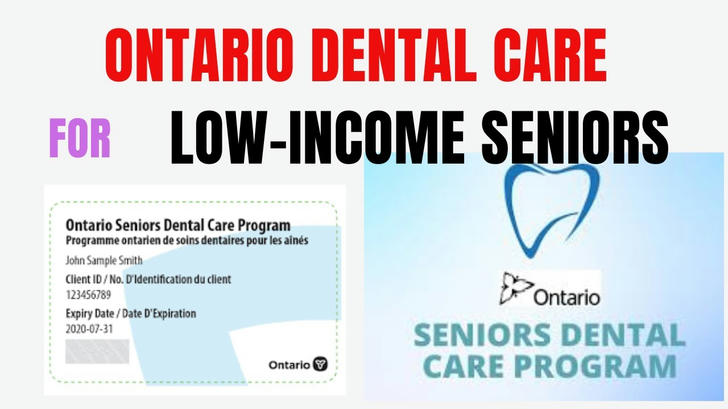Government‑Funded Dental Care and Rehabilitation in Ontario
The Ontario government has programs to help vulnerable populations—particularly low-income seniors and those who have undergone major jaw surgery—access necessary dental care and rehabilitation services. Two key initiatives are the Ontario Seniors Dental Care Program (OSDCP) and the Oral and Maxillofacial Rehabilitation Program (OMRP).

Government‑Funded Dental Care for Low‑Income Seniors: OSDCP
The Ontario Seniors Dental Care Program (OSDCP) aims to provide, routine dental services to seniors aged 65 and older who meet certain income and benefit criteria.
Eligibility
Be 65 years of age or older and a resident of Ontario.
Have a net annual income below the threshold: typically $25,000 or less for a single senior, or a combined net income of $41,500 or less for a couple.
Applicants can apply online or by mail, using a form or web portal. If a person lacks a Social Insurance Number (SIN) or did not file a tax return, a guarantor can assist with confirming eligibility.
Covered Services
Under OSDCP, seniors can obtain a range of preventive, restorative, surgical, periodontic, endodontic, and prosthodontic services.
Some of the specific services include:
Examinations, cleanings, scaling, fluoride, and polishing
X‑rays to diagnose dental conditions
Repairing broken teeth or cavities (restorative treatments)
Removal of teeth or abnormal tissue (oral surgery)
Treatment of infections or pain (endodontics, e.g. root canals)
Treatment of gum disease (periodontal care)
Dentures and prosthodontics
Government‑Funded Advanced Dental Rehabilitation: OMRP
The OMRP is designed to support patients who need implant‑retained prosthetic devices because traditional dentures or prostheses cannot be retained after major structural loss of bone or tissue.
Specifically, the program funds:
Treatment planning, by specialized teams
Surgical placement of dental implants to anchor prostheses
Modifications to prosthetic devices (funded by the Assistive Devices Program, ADP) so they can attach to these implants
Eligibility
To receive OMRP funding, a patient must:
Be 18 years of age or older
Be eligible for a maxillofacial intraoral prosthesis under ADP
Be assessed as unable to retain the prosthesis without implants
Also, all OMRP work must be done at one of five designated hospital treatment centers (e.g. Sunnybrook, London Health Sciences, UHN/Mount Sinai, Ottawa Hospital, Health Sciences North).
Benefits of Government-Funded Dental Programs
Improves Access: Low-income individuals and seniors receive essential dental care they otherwise couldn’t afford.
Prevents Health Issues: Early treatment reduces infections, pain, and related health complications.
Restores Function: For patients needing jaw reconstruction, implants and prosthetics restore speech, chewing, and quality of life.
Reduces Emergency Visits: Fewer people seek help in emergency rooms for preventable dental problems.
Supports Equity: Ensures vulnerable populations receive care regardless of income.
Conclusion
Government-funded dental programs like the OSDCP and OMRP play a vital role in ensuring that all Ontarians—especially seniors and those recovering from major oral surgery—can access the care they need. By investing in both preventive dental services and complex rehabilitation, Ontario is helping improve health outcomes, reduce inequality, and enhance the quality of life for its most vulnerable residents. These programs reflect a broader commitment to accessible, patient-centered healthcare in Canada.
